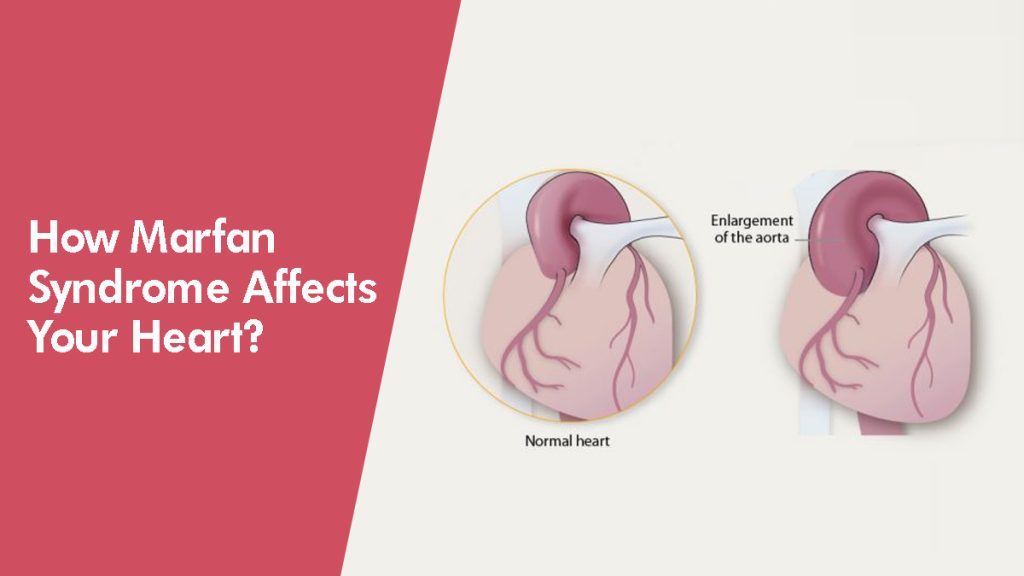People suffer from inherited diseases that are a part of their genes transferred during birth. Marfan syndrome is one of these diseases that affect connective tissues. One suffers from issues affecting the eyes, blood vessels, and skeleton.
What is it?
People suffering from Marfan syndrome have problems with connective tissues that support and anchor organs. The condition becomes life-threatening when aorta /large blood vessels carrying blood from the heart to your body become affected by it, affecting the overall heart health. In addition, people suffering from Marfan syndrome often have long hands and toes with a skinny appearance.
What are its symptoms?
Since the disease affects different areas of the body, spotting its symptoms can be difficult even within family members. Some may experience mild symptoms whereas some may suffer from life-threatening problems such as its effect on the aorta thus on the heart. Some common symptoms include:
- Tall and slender build
- Long arms, legs, fingers, and toes (disproportionately)
- Arched and high palate with crowded teeth
- Protruding breastbone (can be outward or inward)
- Extreme nearsightedness (due to potential effect on eyes)
- Flat feet
- Abnormally curved spine
- Heart murmurs (swishing sounds made due to blood flow in the heart)
What causes it?
The tissues in our body contain a certain protein that gives them elasticity and strength. However, with a genetic problem such as Marfan syndrome, one’s body produces this protein in greater quantity, causing the tissue fibers to become more elastic.
Those suffering from it obtain the defective gene from their parents. If the parent is suffering from Marfan syndrome, there’s a 50% chance that the child will suffer from it too. In case the parents are healthy but the child suffers from the disease, it’s due to a mutation.
Are there any complications?
Although Marfan syndrome affects tissues, the most complicated case is the one where it’s affecting the aortic system of the body. Here are some of the complications that can result in this matter:
1. Aortic aneurysm
The walls of a blood vessel suffering from an aortic aneurysm result in stretching into a bulging around the wall. The blood leaks into this bulged area, causing it to expand and leak. Aortic rupture or explosion of this bulge may lead to serious conditions. People suffering from Marfan syndrome suffer from an aortic aneurysm at the root of the aorta, where the blood leaves the heart.
2. Aortic dissection
Aortic dissection is also somewhat similar to aortic aneurysm. An aorta is made of several layers. Marfan syndrome causes the walls to become more elastic. This causes blood to leak from the inner layers to the outer layers, which results in chest pains. It can also lead to rupture, causing dire consequences.
3. Valve malformations
Valves are gates in your heart that open and close at the right times to ensure proper blood flow without pressuring your heart. A person suffering from Marfan syndrome suffers from the weakening of heart valves.
As a result, the heart has to work harder to maintain blood flow. This puts immense pressure on the heart, causing pains. If left untreated, the pressure can exceed and can cause heart failure, which can result in fatality.
You may need to undergo extensive heart treatment that can be done with medication or a major surgery depending upon the condition of your heart.
4. Other complications
Some of the other complications include:
5. Eye complications
Marfan syndrome affects the eyes of the person, resulting in ectopia lentis (moving out of the lens due to weakening of the structure that holds it). This is common in those suffering from the disease. In addition, retinal issues and early-onset glaucoma are also one of the issues caused by it.
6. Skeletal complications
As highlighted earlier, the person suffering from Marfan syndrome faces skeletal problems. It can affect the normal growth of the chest, causing it to protrude outward or inward. Foot and lower back pains are also some skeletal complications alongside elongated feet, hands, arms, and legs.
When to visit your cardiologist?
Although a slender appearance isn’t much of an issue, the Marfan syndrome can adversely affect the heart. Conditions such as aortic aneurysm, aortic dissection, etc. can be fatal, which is why you need to consult your cardiologist for heart disease prevention.

